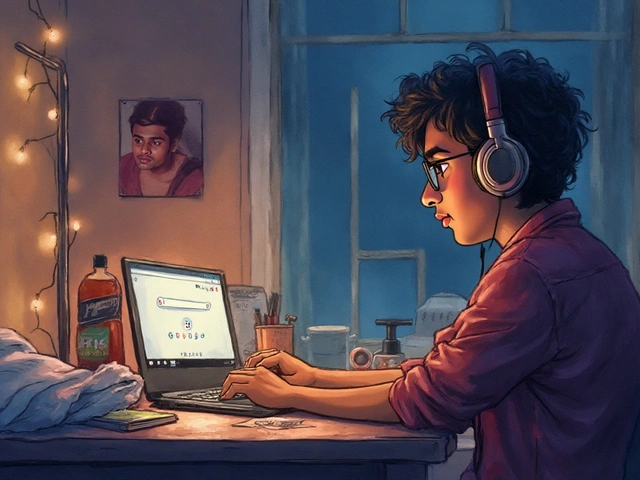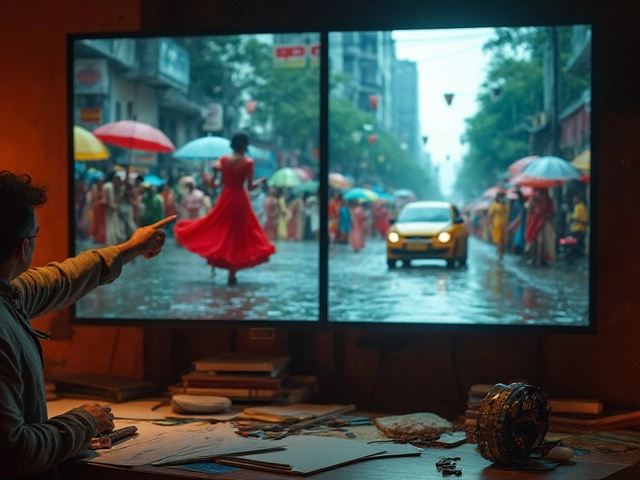Think about India’s population for a second—over 1.4 billion people, hundreds of languages, and endless layers of culture. So, when the question pops up—who is the most respected woman in India?—it’s not a simple game of counting votes or reading surveys. Most people immediately think of big names. India’s had a whole parade of women who’ve left their mark: political giants, scientists, freedom fighters, business tycoons, and athletes who seem almost superhuman. Picking just one seems impossible, but some names naturally rise above the rest, their stories echoing across generations and communities.
Legends and Trailblazers: Drawing Lines Across Indian History
One name you’ll hear from every corner—Indira Gandhi. India’s only female Prime Minister so far, she led the country from 1966 to 1977 and again from 1980 to 1984, steering it through wars and tough decisions. But while she’s iconic, admiration for her can be complicated; not everyone looks back kindly on her Emergency years. Contrast that with the deep, almost unshakable respect for Mother Teresa. Born in Macedonia, but calling Kolkata home, she picked up the Nobel Peace Prize in 1979 for her relentless care of the sick and dying. For decades, she was the face of selfless service in India, turning her Missionaries of Charity organization into a lifeline for the forgotten. You’ll find her name in just about every global top 10 list of most influential women.
But the list of respected women in India doesn’t end in the past. Look at Kalpana Chawla and her beaming face looking back from among the stars. Born in Haryana, she became the first Indian-origin woman in space. Even after the tragic end of the Columbia shuttle in 2003, her story drives a whole new generation of girls to dream bigger. Almost every STEM classroom in India has a poster of her as a reminder: sky’s not the limit, really.
So, what does it take to become “the most respected woman” today? Reputation isn’t about popularity. It’s about trust, legacy, and a certain grit. Some people might say Kiran Bedi—the first female IPS (Indian Police Service) officer. She broke the glass ceiling in policing, took on criminals and corrupt officials, and brought reforms straight into Tihar Jail, one of Asia’s largest prison complexes. Or they might mention Dr. M. S. Swaminathan’s daughter, Dr. Nitya Rao, making a name for herself in rural development and gender rights. Step into boardrooms, and you’ll hear Indra Nooyi’s name, the former CEO of PepsiCo, who’s credited for transforming a global giant—and being refreshingly outspoken about the struggles of work and motherhood.
India doesn’t just respect women for their past achievements. Today’s heroes aren’t just frozen portraits on the wall. Take Mary Kom, the “Magnificent Mary” of boxing, who proved a mother of three could become a world champion—time and again. Or Droupadi Murmu, who became India’s first tribal President in 2022, breaking yet another historic glass ceiling. Every one of these names is a story of pushing boundaries but also building bridges; the ones who are respected built trust by lifting others up.
Modern Icons: Science, Social Change, and Breaking Barriers
India’s respect for women stretches far beyond politics or charity. The field of science, traditionally seen as a men’s world, has some incredible female leaders. Dr. Tessy Thomas, known as the 'Missile Woman of India,’ led key projects at DRDO (Defence Research and Development Organisation). She broke new ground when she became the first woman to head an Indian missile project and was a core team member for the Agni missiles—yes, those same ballistic wonders that made headlines across Asia. Her leadership story gets shared in technical colleges across India, not just as a tale of science but of what happens when old stereotypes are erased.
Step into the world of activism, and you get Medha Patkar, who shook up the system with the Narmada Bachao Andolan, fighting for thousands of displaced villagers. Then there’s Arundhati Roy, whose “The God of Small Things” won her the Booker Prize in 1997, but she’s kept course as a sharp voice for environmental justice and human rights—even when it wasn’t popular. Their paths are lightning rods for youth today, especially for young women determined to reshape the world, brick by brick.
Fast-forward to 2025, and you’ll see the digital revolution in India’s respect for women. Guneet Monga brought an Oscar home for her documentary “The Elephant Whisperers” in 2023, making her a fresh name on the list of those people look up to. Or Priyanka Chopra Jonas, who went from winning Miss World to becoming a cross-continental star in Bollywood and Hollywood—often using her platform to support girl-child education, environmental causes, and refugees.
But pure celebrity doesn’t guarantee universal respect. What makes Indians speak of someone with reverence? It’s about sustained impact. Savitribai Phule, India’s first female teacher from the 19th century, is revered today, especially for what her work did for Dalit and marginalized women. Her story gets dusted off in classrooms, especially during National Girl Child Day, reminding teens that education can change everything. Or Dr. Sudha Murthy, the Infosys Foundation chairperson and award-winning author, whose simple sari and humble attitude make her almost as legendary as her philanthropy.
It’s pretty telling—across fields, Indians from every generation and background look to women who break molds and bring hope, not only to women but to all those fighting against the odds.
Popularity, Impact, and the Weight of Public Respect
Let’s get nerdy for a bit—who gets the most Google searches in India among women? Recent digital data from 2024 puts names like Priyanka Chopra, Mary Kom, Indra Nooyi, and Sudha Murthy high on the list. But data can be a bit misleading—who the public Googles isn’t always who they respect the most. There was a 2022 survey done by India Today that placed Mother Teresa, Indira Gandhi, and Kalpana Chawla at the very top for respect. Across both urban and rural respondents, Mother Teresa scored consistently above 70% for trust and admiration—even among the under-25 crowd who never saw her work firsthand.
| Name | Field | Top Recognition | Year Honored |
|---|---|---|---|
| Mother Teresa | Charity | Nobel Peace Prize | 1979 |
| Indira Gandhi | Politics | Prime Minister & Bharat Ratna | 1971 (Bharat Ratna) |
| Kalpana Chawla | Space Science | Congressional Space Medal of Honor (USA) | 2004 (posthumous) |
| Mary Kom | Sports | Padma Bhushan, Olympic Bronze | 2013, 2012 |
| Sudha Murthy | Literature/Philanthropy | Padma Bhushan | 2023 |
| Kiran Bedi | Police | Ramon Magsaysay Award | 1994 |
If you stack up their achievements, most respected women in India tend to have three things in common: they’ve shattered a glass ceiling in a highly visible way, they’ve kept their reputation clean, and they’ve worked hard for others—not just themselves or their own fame. For instance, Droupadi Murmu’s election as President wasn’t just a political move; it was everyday people in tribal and rural areas who saw hope in her story, someone who understands their struggles from firsthand experience, not just reports.
There’s a reason why, when Indian kids are asked to write essays on “Women I Admire,” you get the same handful of names again and again. Their stories aren’t locked away in museums—they pop up on WhatsApp forwards, TV debates, and new biographies every year. And when you see someone like Dr. Swati Mohan—one of the leads for NASA’s Mars rover Perseverance mission, raised in India but making waves globally—it reminds everyone that Indian women are respected not just at home, but abroad too.
If you visit any Indian school, you’ll see teachers using these women as real, relatable role models. On International Women’s Day, for example, kids and adults share stories about how Sudha Murthy went from being denied a job at TELCO because she was a woman, to heading a multi-crore foundation. Or how Malala Yousafzai, though technically Pakistani, has inspired Indian girls with her similar struggle for education under fire.
What Can We Learn from India’s Most Respected Women?
Every country measures respect differently. In India, it isn’t just about headlines, it’s about resonance—whose story still feels real, even decades later? That’s why Mother Teresa remains right at the top for so many people. Her Nobel Prize may have come from Oslo, but her respect was built day by day, in Kolkata’s most forgotten alleys. And yet, newer heroes keep appearing, giving today’s Indians more names to admire—or even challenge. If you’re a young woman in India aiming high, the stories of these women scream persistence. Don’t just read about them; use their journeys as fuel.
Plenty of people want tips on getting that kind of respect. Start by thinking long-term and focusing on impact: how are you making life better for people around you? Consistency matters more than a single viral moment. Notice how almost every respected Indian woman gave decades to her cause—none of these stories are about overnight fame. Aim for transparency, especially in public life. Scandals don’t just dent personal brands in India—they can wipe out trust built up over decades.
Mentorship is another powerful force. Sudha Murthy, for instance, is known for sitting down with college students just as much as with top CEOs, always focusing on concrete, practical help. Building community, lifting others as you rise, tends to multiply respect a hundred-fold. If you’re looking for inspiration, soak up the stories of women like Savitribai Phule or Droupadi Murmu. Their journeys weren’t about wanting fame, but about seeing problems, refusing to accept them, and changing the status quo for the better.
Above all, each of these women offers lessons: don’t underestimate the ripple effect of standing up for change; don’t wait for permission to be the first. If you’re fighting for your place, remember, every one of these now-respected names began as an ordinary person with obstacles, but they turned struggle into a stepping stone. Respect isn’t given—it’s built and rebuilt, choice by choice, day by day. If India’s history tells us anything, it’s that the most respected woman in India could be someone who’s still solving problems quietly, yet to step into the spotlight. Maybe the next role model is already out there, making a difference—and we’ll all be hearing her name soon.




Post A Comment